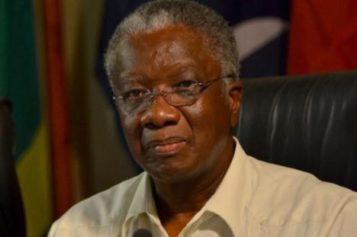BRIDGETOWN, Barbados – As the possibility of another food crisis looms in the wake of the worst drought faced by the United States in 56 years, the Ministry of Agriculture, Food, Fisheries and Water Resource Management is urging Barbadians to produce as much of their own food as possible.
A statement from the ministry is also encouraging local farmers to take advantage of the opportunity to expand local food production, and is dissuading importers of food items from exploiting the situation.
The statement outlined recent reports indicating that corn production was expected to drop by 11 percent from 2011, with yields 23 percent below normal. Additionally, soya bean yields are due to decline by nine percent, and wheat yields are also projected to decline.
“The shortage of these commodities on the international market has already prompted other countries such as Russia to consider imposing export bans on their supplies,” the statement said.
It added that the situation had already resulted in increases in food prices in some countries, with the future price of corn anticipated to increase by as much as 60 percent as stocks shrink to their lowest levels since 1973.
“There is global alarm that there could be a repeat of the 2008 food crisis because data shows food prices have jumped six percent last month. The FAO Food Price Index, which measures monthly price changes for a basket of cereals, oilseeds, dairy, meat and sugar, averaged 213 points in July, up six percent from the 201 points reported in June,” the statement noted.
It warned that the situation threatened to increase food prices to unprecedented levels in Barbados and urged citizens to take action, adding that the ministry would be expediting the distribution of planting materials, seeds and other inputs in order to stimulate local food production.
“The situation presented by this world food situation brings into the focus the importance of agriculture in the world today,” the statement noted.
“No matter what industries we develop in this country, no matter how developed we may become, we still have to eat and a dependence on others to supply our food is not a sensible strategic option…


